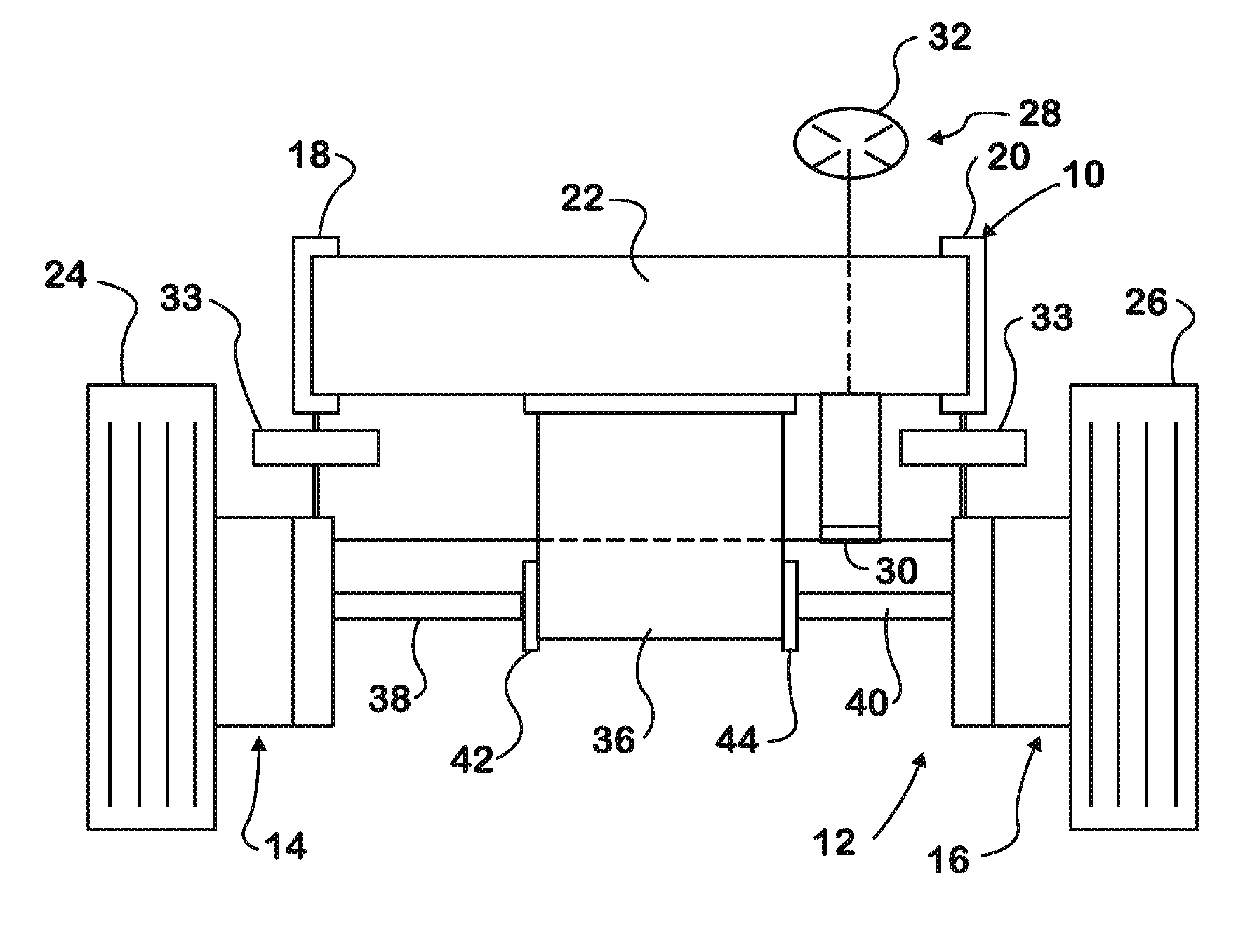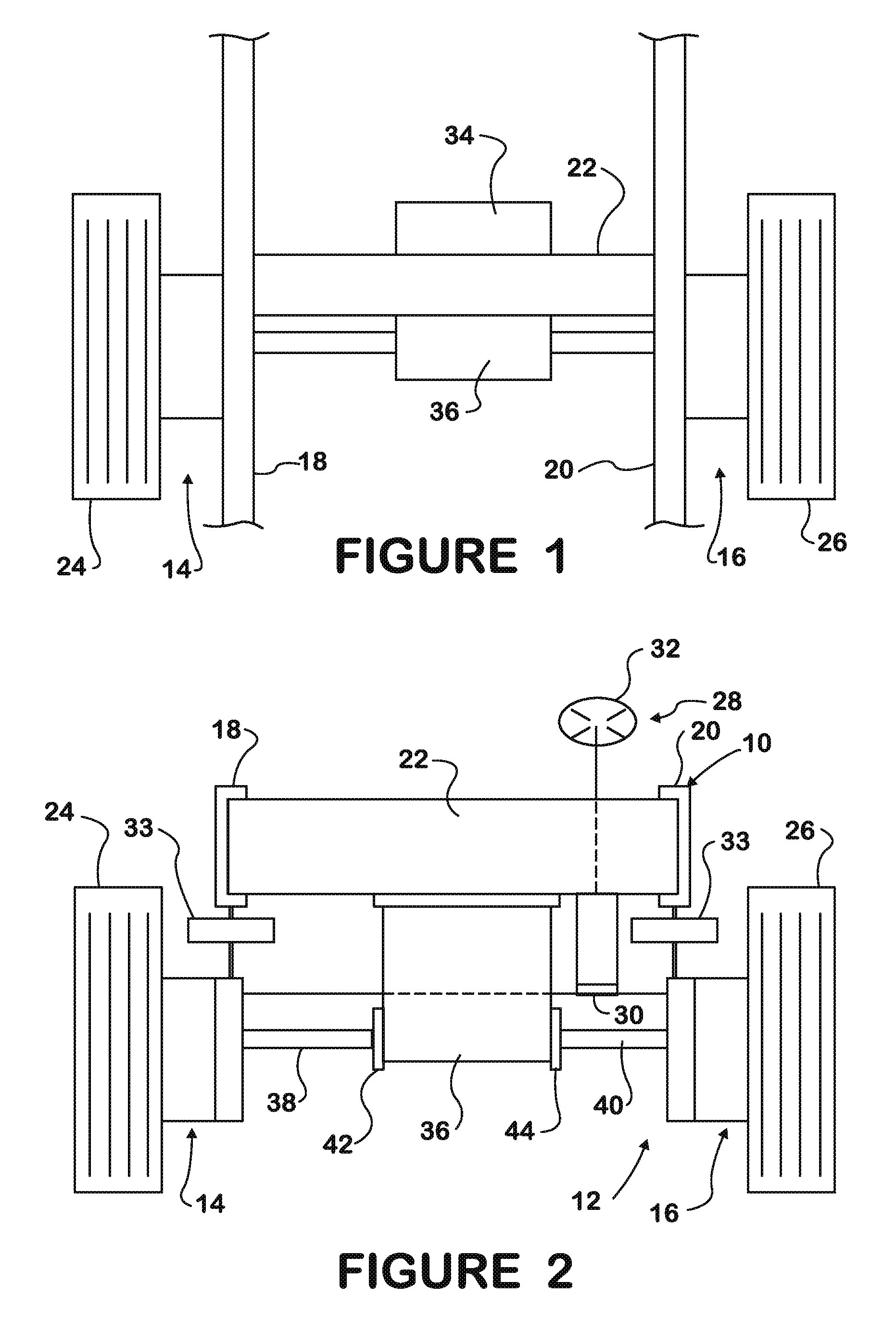Chassis mounted electric, independent, steering axle of a vehicle
a technology of electric steering axle and chassis, applied in the direction of non-deflectable wheel steering, braking system, transportation and packaging, etc., can solve the problems of poor, or inexistent, lateral control of axle bar location, and the propulsion system significantly increases the ratio of unsprung to sprung weight of the vehicle, so as to shorten the life of electric drive units. , to achieve the effect of reducing the turning radius
- Summary
- Abstract
- Description
- Claims
- Application Information
AI Technical Summary
Benefits of technology
Problems solved by technology
Method used
Image
Examples
Embodiment Construction
[0020]FIGS. 1 and 2 show a truck chassis frame 10 having an electric, independent, steering axle 12 that comprises right and left wheel units 14, 16 each independently suspended from frame 10. The truck cab that mounts on the chassis frame is not specifically shown.
[0021]Frame 10 comprises right and left side rails 18, 20 running lengthwise of the frame and comprising respective steel channels. Frame 10 comprises one or more cross members at locations along the frame length, such as the one marked 22.
[0022]Right wheel unit 14 comprises a spindle-mounted right wheel 24, and left wheel unit 16, a spindle-mounted left wheel 26. The spindles have journaled mountings in each wheel unit that enable the wheels to turn about respective generally vertical axes as they are being steered by a steering system 28.
[0023]Steering system 28 preferably comprises an electrically assisted rack-in-pinion steering mechanism 30 that is operated by the usual steering wheel 32 within the interior of the ve...
PUM
 Login to View More
Login to View More Abstract
Description
Claims
Application Information
 Login to View More
Login to View More - R&D
- Intellectual Property
- Life Sciences
- Materials
- Tech Scout
- Unparalleled Data Quality
- Higher Quality Content
- 60% Fewer Hallucinations
Browse by: Latest US Patents, China's latest patents, Technical Efficacy Thesaurus, Application Domain, Technology Topic, Popular Technical Reports.
© 2025 PatSnap. All rights reserved.Legal|Privacy policy|Modern Slavery Act Transparency Statement|Sitemap|About US| Contact US: help@patsnap.com


